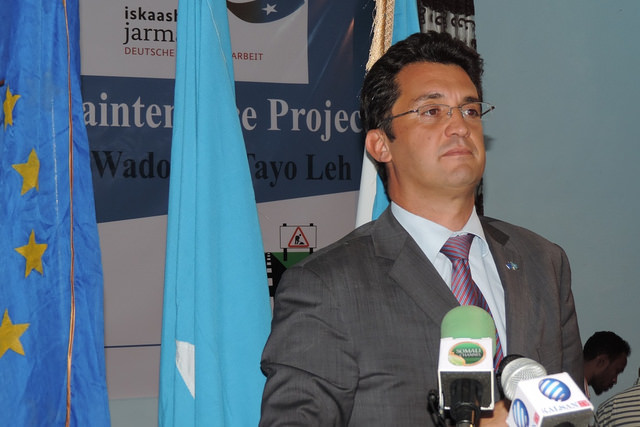EU questions Somali leaders’ fidelity to electoral timelines

The European Union which is one of the main financiers of Somalia’s reconstruction process has cast doubt on Somali leaders’ commitment to delivering the electoral promise as the polls body pushes the electoral dates ahead for the second time.
In a statement following similar concerns by the UN Security Council this past week, the EU said Saturday it was dismayed by the Federal Indirect Electoral Implementation Team’s announcement last week that the Parliamentary and Presidential polls would be postponed for another one month.
The EU said the delay ‘puts in question the Somali authorities’ unequivocal commitment to the electoral process’.
The 28 member block called for agreement on governance structures until November 30 to confer legitimacy echoing the UNSC call.
In a statement Wednesday, the UN Security Council called for what is suggestive of a caretaker administration ahead of the November 30 Presidential poll.
“The members of the Security Council underscored the need for legitimacy to be bestowed until the electoral process is completed, and for governance arrangements to be agreed by the Somali authorities in order to avoid an institutional vacuum,” the UNSC said.
The FIEIT announced last week following a three day meeting in Mogadishu the elections of the members of the Lower House will be conducted between October 23 and November 30 while speakers of Upper and Lower House will be elected November 23.
A new president will be elected November 30 instead of October 30 as earlier agreed, the polls body said.
President Hassan Sheikh Mohamud’s term ended September 10 while that of the August House came to a close on August 20.
The EU echoed UN Special envoy to Somalia Michael Keating’s concerns that the delay is a recipe for manipulation of the elections warning measures must be put in place to ensure the process is not interfered with and that it must be transparent and credible.
The FIEIT had cited bureaucratic process in funding of the polls, delay by elders to submit delegate’s lists and security concerns as responsible for the delay.
The international community will finance 60% of the $14 million polls exercise while Somalia will be expected to clear the balance. Out of the 40% by Somalia, the Federal Government will contribute 15% while fees from candidates is expected to add to the 25% deficit.